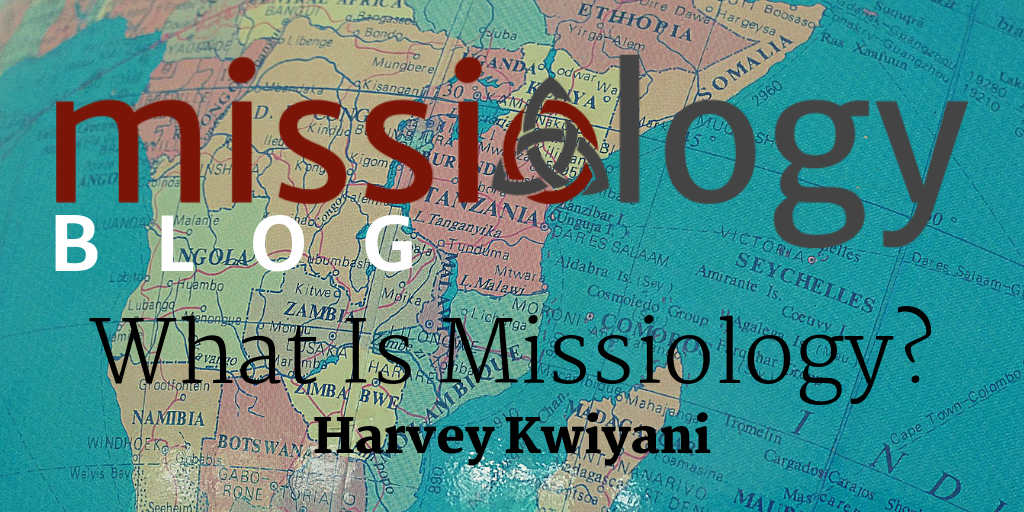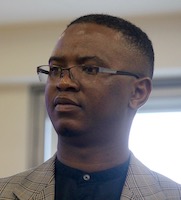
We are living in a new era of mission. Fact. Mission is not what it used to be. As an African Christian who was born just outside a former mission station (that later became a colonial farm) and was educated in Catholic mission schools in Malawi and now is serving in mission in Europe, everything about my being here and my being able to contribute to this blog testifies to the fact that the way we see God’s mission in the world has changed, requiring us to rethink the way we theologise about it as well. The most obvious change to most of us is that the mission field is no longer only some place in Africa, Asia, or Latin America, as it was 100 years ago. Indeed, some of the places that had no real Christian presence only one hundred ago have become the most Christianised parts of the world. Sub-Saharan Africa is a good example. It is home to more than 500 million Christians today. At the beginning of the twentieth century, less than 5 million Christians lived in sub-Saharan Africa. While Christianity has exploded in the non-Western world, the Western church continues to shrink both in numbers and in its influence on society. Of course, Europe, the very continent that sent missionaries to other parts of the world in the nineteenth and twentieth centuries, has now become a mission field in dire need of missionaries. I heard of a conference of African churches wanting to send missionaries to Europe whose theme asked the question, “Who Is the Heathen Now?”
The second change is, as Lamin Sanneh has ably argued, that Christianity is now a world religion. There are Christians in every country and every major people group in the world.1 This emergence of the world church must give birth to a new worldwide missionary movement that makes mission from anywhere to anywhere possible. Mission is the raison d’être of the church. Any church that does not engage in mission is short-changing itself of its full calling. Thus, in this new era of mission, the exercise of participating in God’s mission must become a worldwide affair that allows for Christians from any part of the world to serve in any other part of the world. In addition to European and North American missionaries, God calls people of any other race and continent to participate in God’s mission in the world today. Indeed, a missionary in our day and age can be anybody; a Malawian domestic worker in Dubai, a Korean student in London, a Brazilian businessman in Mozambique, a Nigerian cattle herder in Burkina Faso, or indeed, a Mexican pastor in Chicago. God’s call to mission invites all Christians to participate. Mission itself must become a multi-centred phenomenon.
Subsequently, our endeavours in the study of God’s mission in the world must reflect the polycentric nature of mission itself. If our missiology is to be relevant to the world church of the twenty-first century, it must be intentional in engaging the voices of both mission scholars and practitioners from different parts of the world. The Spirit of God has given different gifts to different parts of the Body of Christ for the edification of the whole Body. Paul’s analogy that the Body is held together by the gifts that each member of the Body contributes to the Body has to shape our missiology (Eph. 4:16). We will all be enriched when we learn from one another across continents, cultures, and denominations. As Andrew Walls in all his admirable eloquence reminds us, “New theological insights emerge at the places where Christianity is crossing new cultural frontiers and encountering new cultures.”2 It is usually at the new cultural frontiers—where people tend to think afresh about how to engage in mission, how to present the gospel in contextually relevant manners, and how to answer questions about what the good news is to these new peoples—that missiology emerges as well. A great deal of these fresh conversations are happening in the parts of the world where Christianity is growing at the moment, like sub-Saharan Africa, Latin America, Korea, and China. Take Africa, for example, where most Christians are living in the second century of their Christianity and are having to think about what it means to follow Christ, engaging in his mission in contexts of abject poverty, political corruption, gender-based violence, in a spirit-centred culture and a spiritually charged atmosphere. My African students often ask, “How shall we theologise about mission in ways that will speak to the issues that our people are facing?” Indeed, they may continue to celebrate the mission history of such people as David Livingstone, Mary Slessor, and James McKeown, who are often regarded as heroes for bringing the gospel to Africa, but they also need to imagine a missiology that engages the spirit world around us, a missiology that does not benefit from empire or capitalism, or indeed, a missiology that is not shaped by the Enlightenment. Such a missiology will be different from most of what we have in our libraries at the moment.
It is my hope that we will see increasing participation of non-Western voices in missiology in our generation. This is how our missiology will be relevant in the context of world Christianity in the twenty-first century. In doing so, our mission histories will begin to recognise the significant roles played by local Christians (whether as translators or as evangelists) in the spread of Christianity around the world. In addition, it will begin to highlight subjects that are of little importance to Western mission scholars (like witchcraft, for example, which continues to be a major issue in African Christianity). More important, it will broaden our understanding of God’s work around the world. The discipline as a whole will be rejuvenated—there is a lot more to research and discuss than Western missiologists can engage. For instance, as the impact of migration on mission has become more prevalent, a new branch of missiology has emerged called Diaspora Missiology. Unfortunately, the voices in that conversation (at least here in Europe) are almost exclusively diaspora people—migrants. It would be most helpful if we engaged one another—migrant and locals—as we discern what it looks like to participate in mission wherever we are. At the 1910 Edinburgh World Mission Conference, a newly ordained Anglican Indian delegate, V. S. Azariah, made an earnest appeal against racism and paternalism in mission, asking instead for relationships between the missionaries and local Christians. “Through all the ages to come the Indian Church will rise up in gratitude to attest the heroism and self-denying labours of the missionary body. You have given your goods to feed the poor. You have given your bodies to be burned. We also ask for love. Give us friends!”3 May our missiology begin to answer Azariah’s plea.
Notes
1 Lamin O. Sanneh, Disciples of All Nations: Pillars of World Christianity, Oxford Studies in World Christianity (New York: Oxford University Press, 2008), xix–xxii.
2 Andrew F. Walls, “Christian Scholarship in Africa in the Twenty-First Century,” Transformation 19, no. 4 (October 2002): 222.
3 Quoted in Brian Stanley, The World Missionary Conference, Edinburgh 1910 (Grand Rapids: Eerdmans, 2009), 125.
 Harvey Kwiyani (PhD, Luther Seminary), a Malawian mission educator and practitioner teaching African theology at Liverpool Hope University in Liverpool, is the editor of Missio Africanus. Following many years of mission work in Europe and North America, he has become a voice on issues concerning mission in a postcolonial world. He works with migrant congregations facing cultural challenges as they try to engage Westerners in mission. He is the author of Sent Forth: African Missionary Work in the West (Orbis, 2014) and Mission-Shaped Church in a Multicultural World (Grove, 2017) and Our Children Need Roots and Wings (CreateSpace, 2018) in which he explores the missiological challenges facing second-generation African migrants in Europe.
Harvey Kwiyani (PhD, Luther Seminary), a Malawian mission educator and practitioner teaching African theology at Liverpool Hope University in Liverpool, is the editor of Missio Africanus. Following many years of mission work in Europe and North America, he has become a voice on issues concerning mission in a postcolonial world. He works with migrant congregations facing cultural challenges as they try to engage Westerners in mission. He is the author of Sent Forth: African Missionary Work in the West (Orbis, 2014) and Mission-Shaped Church in a Multicultural World (Grove, 2017) and Our Children Need Roots and Wings (CreateSpace, 2018) in which he explores the missiological challenges facing second-generation African migrants in Europe.
 Blog
Blog
